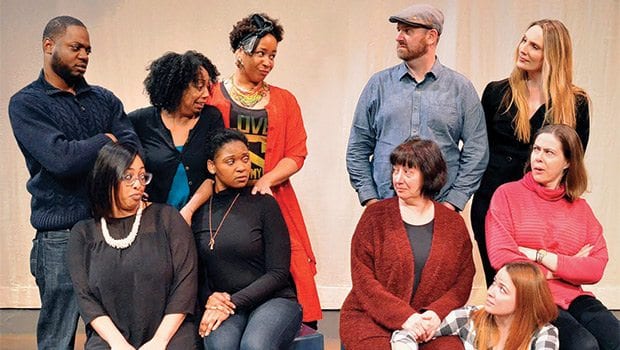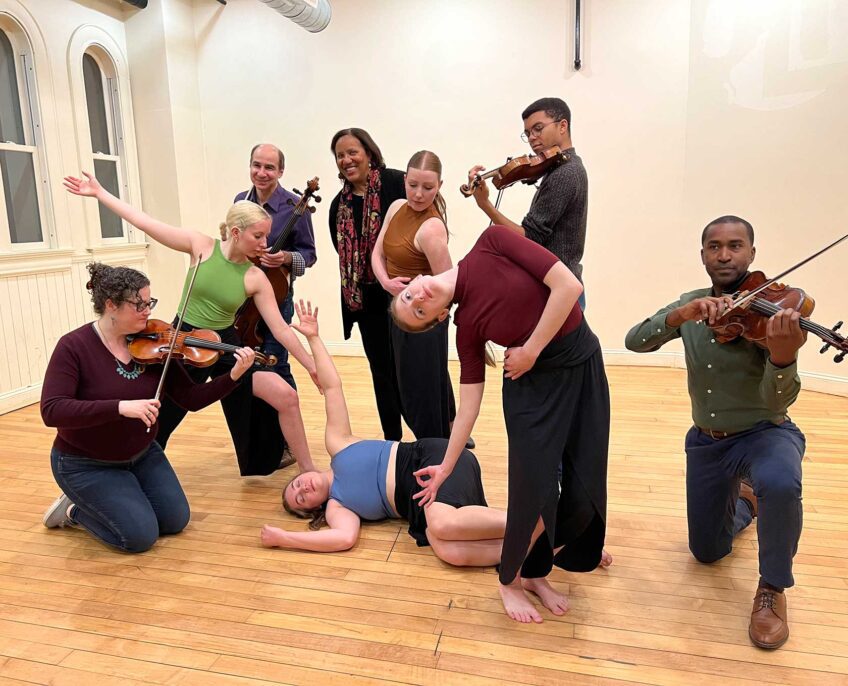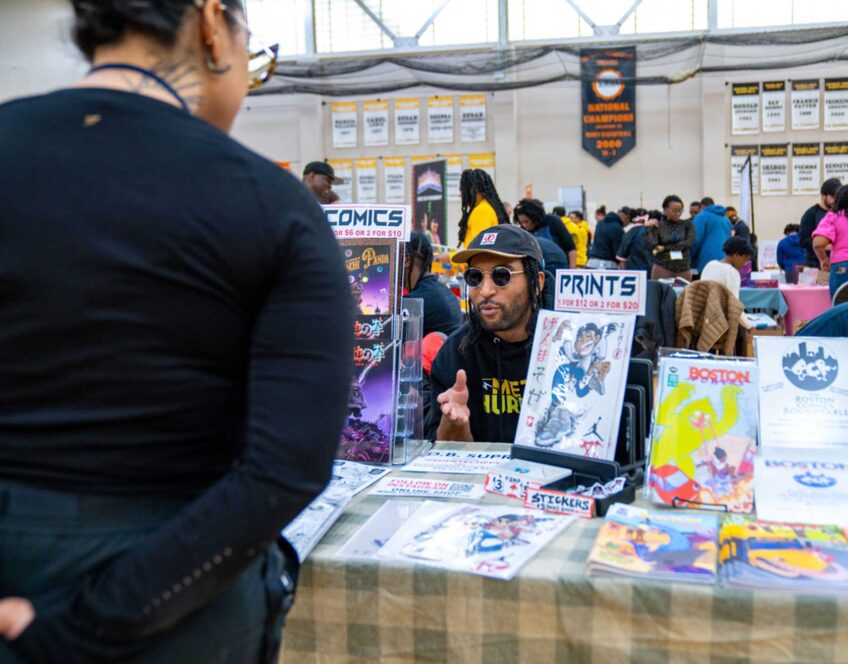
The following review contains spoilers for “Barbecue.”
Through May 7, The Lyric Stage Company of Boston presents “Barbecue,” a hilarious and revealing show by Robert O’Hara, writer of “Bootycandy.” The show tells, and retells, the story of the O’Mallery family. Four siblings, each with their own dependencies and habits, assemble in a public park to stage an intervention for their sister Barbara, nicknamed Zippity Boom.
Running a little over two hours, the show packs in a heavy dose of comedy and commentary, starting with the intervention itself. Brother James T. brings a Taser, and it doesn’t go unused. Jackie Davis is a queen of physical comedy as Barbara’s sister Marie, a boisterous young woman with an affinity for Jack Daniels and a “light” crack cocaine habit. Oldest, and bossiest, sister Lillie Anne, who organized the event, is desperate for everything to go perfectly. As a horn beep indicates Zippity Boom’s arrival, she screeches, “Everybody dance!” and starts physically moving her siblings in an effort to disguise the intervention in the façade of a fun, family barbecue, something this family clearly hasn’t had much experience with.
Intervention
In the first act, which sets up the intervention, the interplay between the siblings and the arrival of Zippity Boom alternately are played out between a black family and a white family. At the end of the first act a surprising twist is revealed: The black family is a group of actors telling the story for a movie. In the second act, the lead actress, played by Ramona Lisa Alexander, meets with Barbara, the white Zippity Boom on whom the story is based, in an attempt to understand her character.
This twist provides a sharp commentary on commonplace whitewashing in contemporary media. Barbara (Deb Martin) explains her meth habit to the actress, who immediately says they’ll change it to crack, after a good five minutes of harping on her desire to keep the story authentic. “Black folks in movies don’t smoke no meth,” she says. “They smoke crack.”
In the same scene, the actress becomes wildly offended when Barbara points out her race. “I’m a movie star/singer,” she says. “So if we could leave race out of the conversation — like way out of the conversation, like all the way back in Africa — that would be great!” Her melodramatic reaction to Barbara about her race is humorous, but also points to the reality of black talent being judged not for skill set, but for skin color.
Like “Bootycandy,” the show is highly entertaining, laced with stellar acting and a rich comedic script. It also spotlights the discrepancies in portrayals of race in movies, and satirizes whitewashing by flipping it on its head. Like the O’Mallery’s Taser-ful barbecue, you’ll leave feeling surprised, put off, and maybe a little shocked.




![Banner [Virtual] Art Gallery](https://baystatebanner.com/wp-content/uploads/2024/04/NJ-H_1-713x848.jpg)

